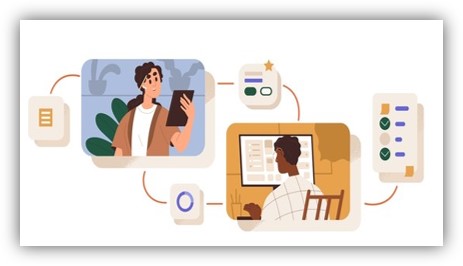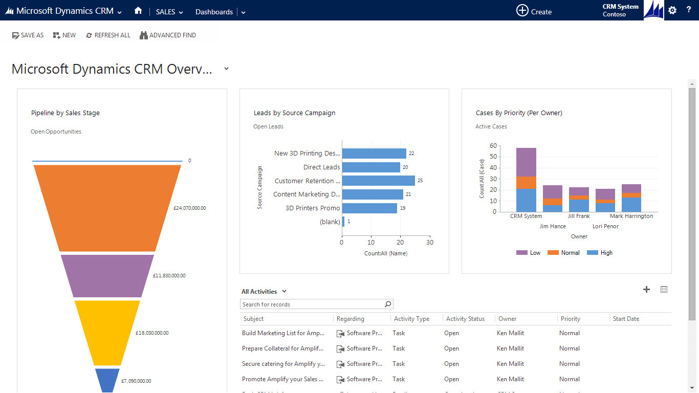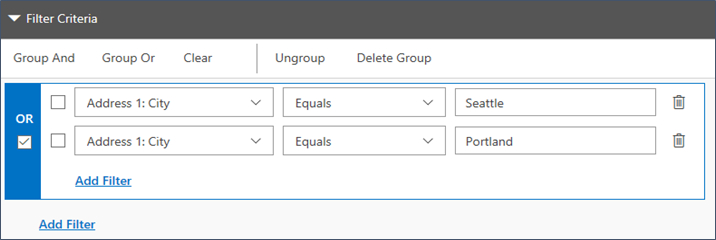5 Rules for Success with Microsoft D365 Sales Implementation
Throughout our professional career as a Microsoft Partner, we have carried out several implementation projects of ERP D365 Finance, D365 Business Central and CRM D365 Sales.
Although the implementation methodology of a technology project does not vary much between products, we have found that in the case of CRM, a slightly different set of rules apply to those of an ERP.
In this article we detail what we consider to be 5 rules to follow in order to be successful in a D365 Sales implementation.
Definition of key users
The success of a management software implementation project is the combination of three elements:
- The features and functionalities of the chosen product: in this case D365 Sales.
- The knowledge, experience and professionalism of the selected partner.
- The organization, objectives and involvement of the client’s key users.
All of the above elements are important, but a D365 Sales implementation project is unlikely to succeed without assigning key users who are knowledgeable about the business and well involved in the solution. In this case, this specific responsibility confers a special relevance and greater importance.
So in this case, who should be the key users? What specific people from the organization are we going to assign to the project team? Interestingly, the involvement required of the IT department for a D365 Sales project does not usually require a relevant lead role and can be very limited in general.
We do believe that IT should be involved in the project, but mainly for relatively simple administration tasks, such as the following:
- Deployment of environments, access to environments
- User management (registration, deregistration, synchronization with Outlook)
- Permissions management
- Data management (database maintenance)
- Document template management
The definition of sales processes and the definition of forms do not necessarily require your involvement. The IT department could also monitor the project to ensure deadlines and costs.
So who should be the key users?

The key users chosen must be people who are very familiar with the company’s sales processes and daily operations at all levels. These people, who will be part of the project team and therefore will be key in the definition and results of the project, must be able to lead internal meetings in the sales team and must be given the power to make decisions. Above all, they must have an interest in the project and the technology.
Data quality vs. data quantity
It seems that when we start migrating data, there is a race between sales people to see who can bring the most data into the system; Quantity does not equal Quality. D365 Sales can handle anything, but if the source data is not reliable, it will be sorted in D365 Sales but it will still be unreliable. We remember the maxim in this aspect that is repeated like a mantra: “Garbage In, Garbage Out”.

We must also emphasize the importance of separating what are Prospective Customers (leads, contacts, potentials, …) and those who are already firm customers. Firm customers are usually already in the ERP, as they have already generated commercial purchase/sale operations previously.
Define business processes
Key users must define business processes from start to finish. D365 Sales allows you to have as many workflows as you need in your business. Despite selling the same product, the sales process in the public sector is totally different from the private sector, for example. Even within the same company, it is possible to have more than one workflow for the same circuit, depending on variables such as the type of customer, product or service or even the time of year.
In any case, Revertis helps you in the definition and establishment of these flows, but key users must provide their initial definition and their particular knowledge of the company in question.

Define when the information is needed
Sales management always goes to the maximum. A prospect’s first entry should be simple, quick and concise. The user’s perception of the system, i.e. who will be on the front line using the system, is very important for the successful implementation of D365 Sales as a CRM. It would be a mistake to ask for too much information in this process, which would take too much time for the people involved.
When we create a prospective customer, we should ask for the minimum. Normally:
- First name Last name or company
- Phone
- E-mail address

As the contact prospers, we will gradually add the rest of the mandatory fields, each one in the specific phase of the prospect qualification process. Asking for too much information about a prospect at the wrong time can be counterproductive, both for the users of the system and for the prospect or the commercial objective pursued in itself. Sales reps need a fast and agile tool. In this sense, we apply the possibilities of automated creation, both from an Outlook message and from a link to a website or any other input chained to any process of data capture or reception.
It goes without saying that the CRM D365 Sales can be used from any device, whether it is a tablet or even on the phone, both iOs and Android. The salesperson can even dictate his comments using the phone’s microphone, without having to type on the phone.
User training
It is very important to consider in the implementation budget the item corresponding to user training. We remind you that companies can benefit from funds or credits to assume this part of the project.
The acceptance of the end user is very important in the outcome of the project. If the user does not acquire a good handling and knowledge of the tool that allows him to feel in a short period of time that he has mastered it, it is more than likely that his acceptance will be affected.

To this end, teaching them how to customize their views and use different filters for direct access to the information on each of the screens in D365 Sales fosters the user’s sense of control of the tool. Letting each sales team have its own Dashboard is a great step forward.

Teaching how to use the filters saves hours of Report preparation and gives the user a better command of the tool, increasing their perception of control and active participation in the results and in obtaining the information that is generated in the CRM.

The integrated and well explained use of the CRM tool with the rest of the Microsoft platform (Outlook mail, calendars, tasks, Teams, SharePoint, etc…), gives a lot of life to the project and promotes a great acceptance of the tool, seeing that it can be used naturally and transversally with the rest of the daily processes and known by the users.
If we manage to maintain and respect these 5 simple rules, the CRM D365 Sales implementation project will be much more likely to be a success.
Do not hesitate to contact Revertis if you are considering implementing CRM D365 Sales.




